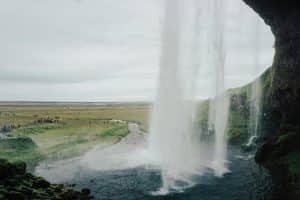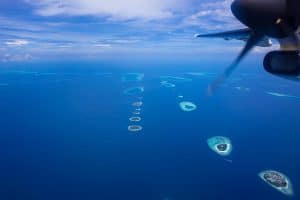Azores Islands: Marine Conservation and Eco-Friendly Activities
The Azores Islands, an archipelago in the Atlantic Ocean, are known for their beautiful landscapes, abundant marine life, and commitment to eco-friendliness. Located about 1,500 kilometers west of Portugal, the Azores have a unique blend of volcanic and terrestrial features, making them ideal for a wide range of outdoor activities. But what sets the Azores Islands apart is their dedication to marine conservation and sustainable tourism. In this article, we will explore the various eco-friendly activities you can enjoy while visiting the Azores.
The Importance of Marine Conservation in the Azores
The Azores Islands are an important marine biodiversity hotspot, with an estimated 5,000 marine species living in its waters. Due to its location in the middle of the Atlantic, the islands are a natural stopover for marine animals, such as whales and dolphins, making it a popular destination for eco-tourism. However, with the increase in global tourism and commercial fishing, the marine ecosystem in the Azores is facing numerous threats.
To combat these threats and protect its marine life, the Azores have implemented strict regulations and sustainable practices. For instance, the islands have designated over 7,000 square kilometers of their waters as marine protected areas, where fishing and other damaging activities are prohibited. This has resulted in the recovery of several fish species and the proliferation of marine life, making the Azores one of the best places in the world for diving and snorkeling.
Exploring Marine Life in the Azores
Diving and Snorkeling
With its crystal clear waters and abundant marine life, the Azores offer some of the best diving and snorkeling experiences in the world. The islands are home to several dive sites, each with its unique features and marine inhabitants. Whether you are a novice or an experienced diver, there is something for everyone in the Azores.
Some of the popular dive sites in the Azores include the Princess Alice Bank, a seamount recognized as one of the top 10 diving spots in the world, and the Formigas Islets, known for its stunning underwater arches and tunnels. These dive sites offer a chance to encounter large marine animals, such as manta rays, tuna, and sharks, while also observing colorful fish and octopuses.
Whale and Dolphin Watching
The Azores are also known for their impressive population of whales and dolphins. With more than 20 different species frequenting the islands’ waters, the Azores offer one of the best whale watching experiences in the world. The most commonly spotted species include sperm whales, humpback whales, and bottlenose dolphins.
To ensure the safety and well-being of these magnificent creatures, whale watching tours in the Azores adhere to strict regulations and guidelines. Some of the eco-friendly tour companies even collaborate with marine biologists to educate visitors about the importance of marine conservation.
Embracing Sustainable Practices in the Azores
Aside from marine conservation efforts, the Azores are committed to sustainable practices in all aspects of tourism. The islands’ government has implemented a Sustainable Tourism Plan, which aims to promote sustainable tourism and protect the environment. As a result, many eco-friendly accommodations, restaurants, and tourist activities have emerged, offering visitors a guilt-free vacation experience.
Moreover, the Azores have embraced renewable energy sources, such as wind and geothermal power, to reduce their carbon footprint. The islands are also working towards becoming a plastic-free destination, with initiatives like the ‘Say No to Plastic’ campaign and beach cleanups.
Conclusion
The Azores Islands are a paradise for eco-conscious travelers. With their commitment to marine conservation and sustainable tourism, the islands offer a perfect blend of adventure, relaxation, and education. From diving with large marine animals to observing majestic whales and embracing eco-friendly practices, a trip to the Azores is an unforgettable experience that also contributes to protecting and preserving the marine ecosystem.








